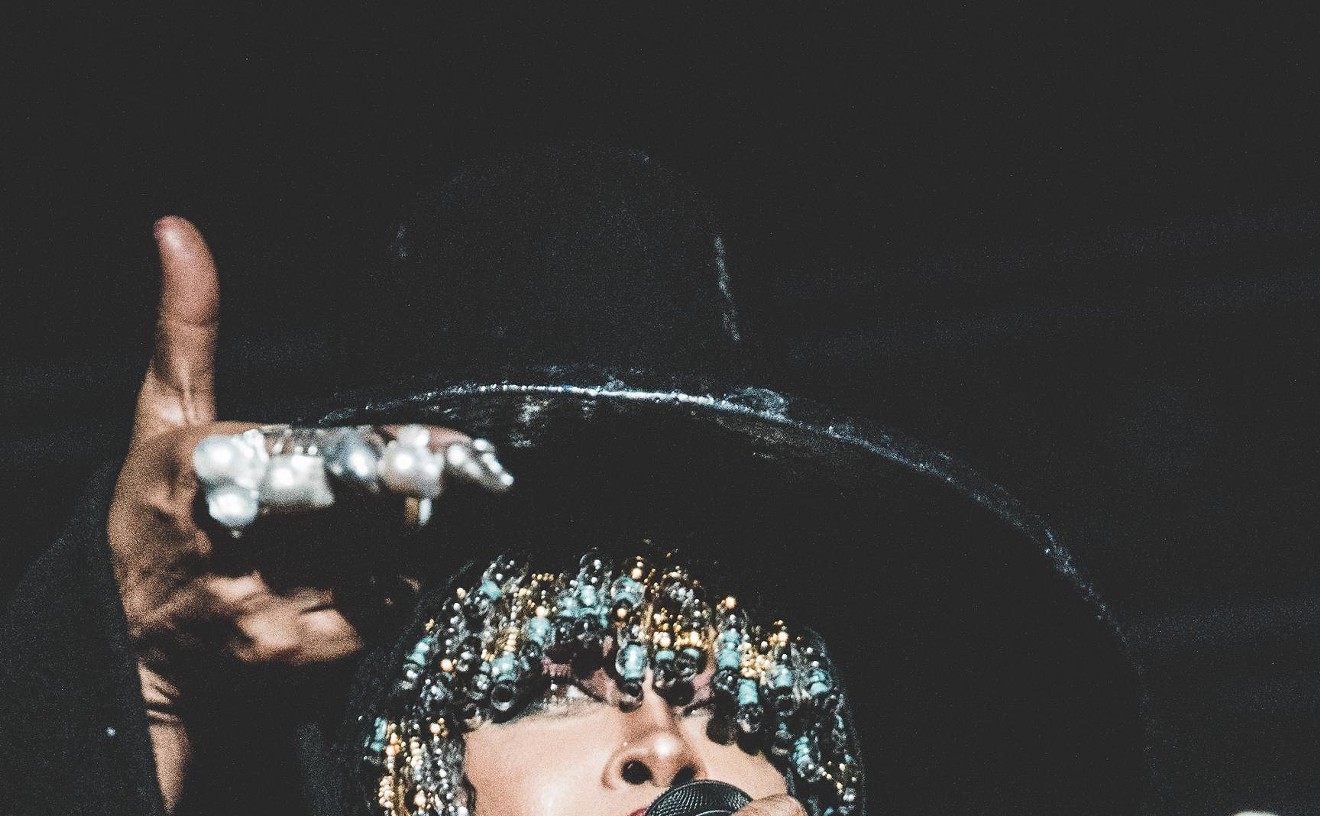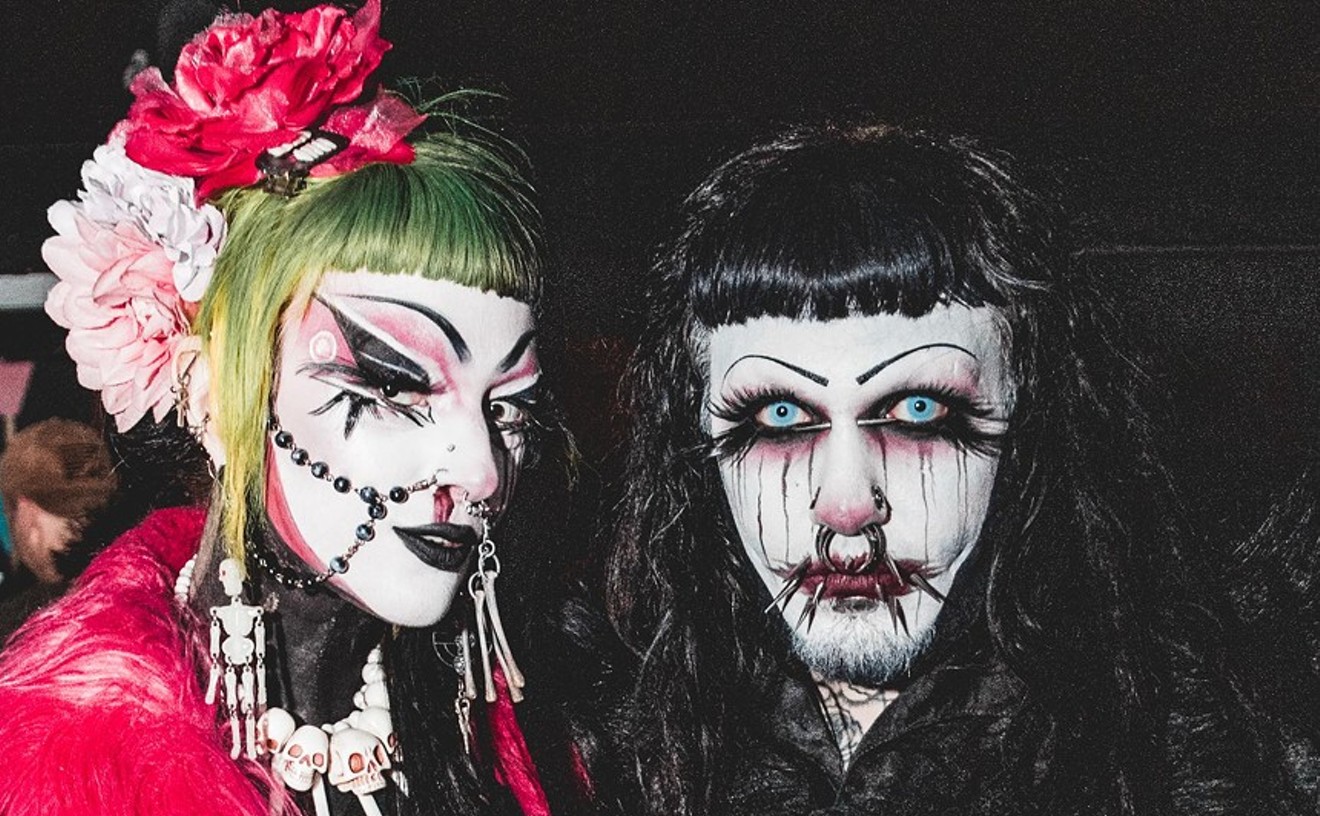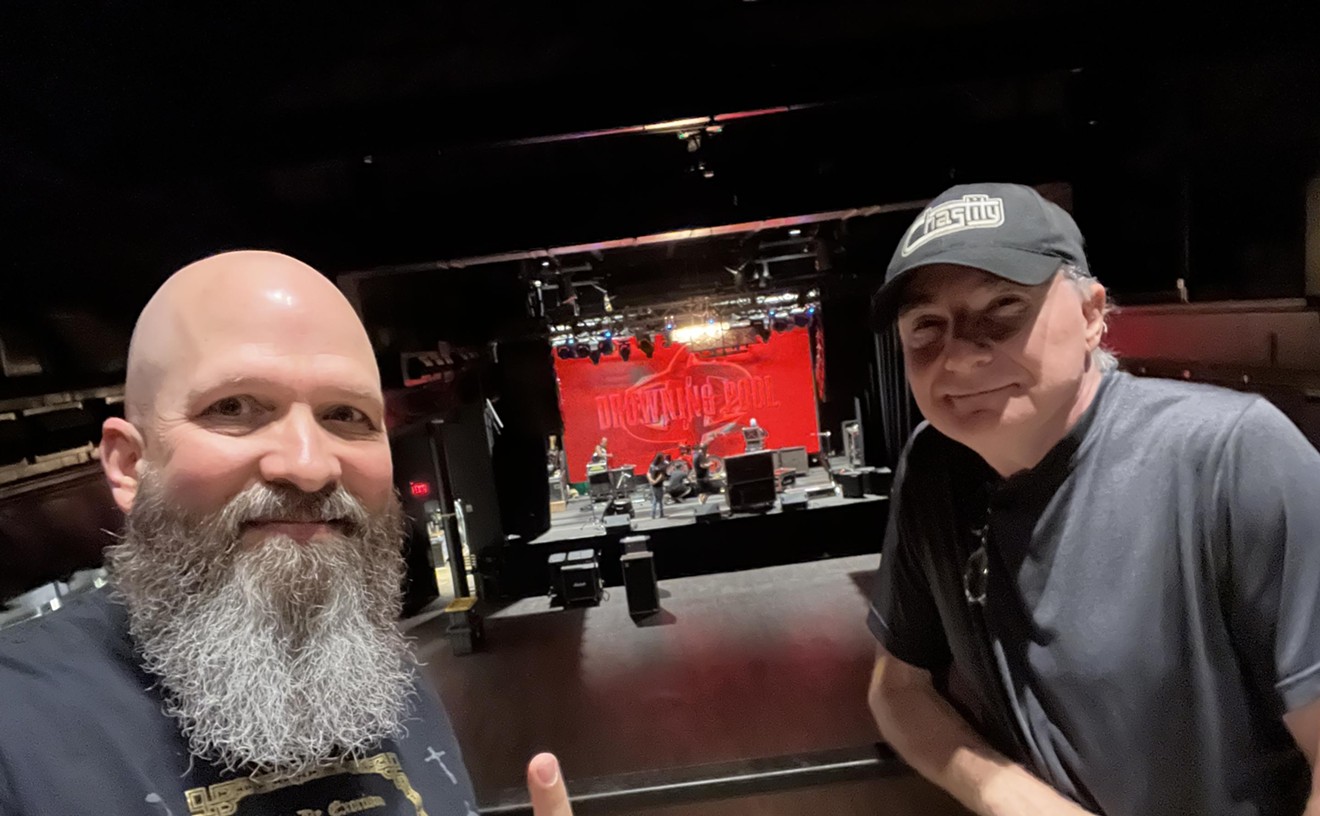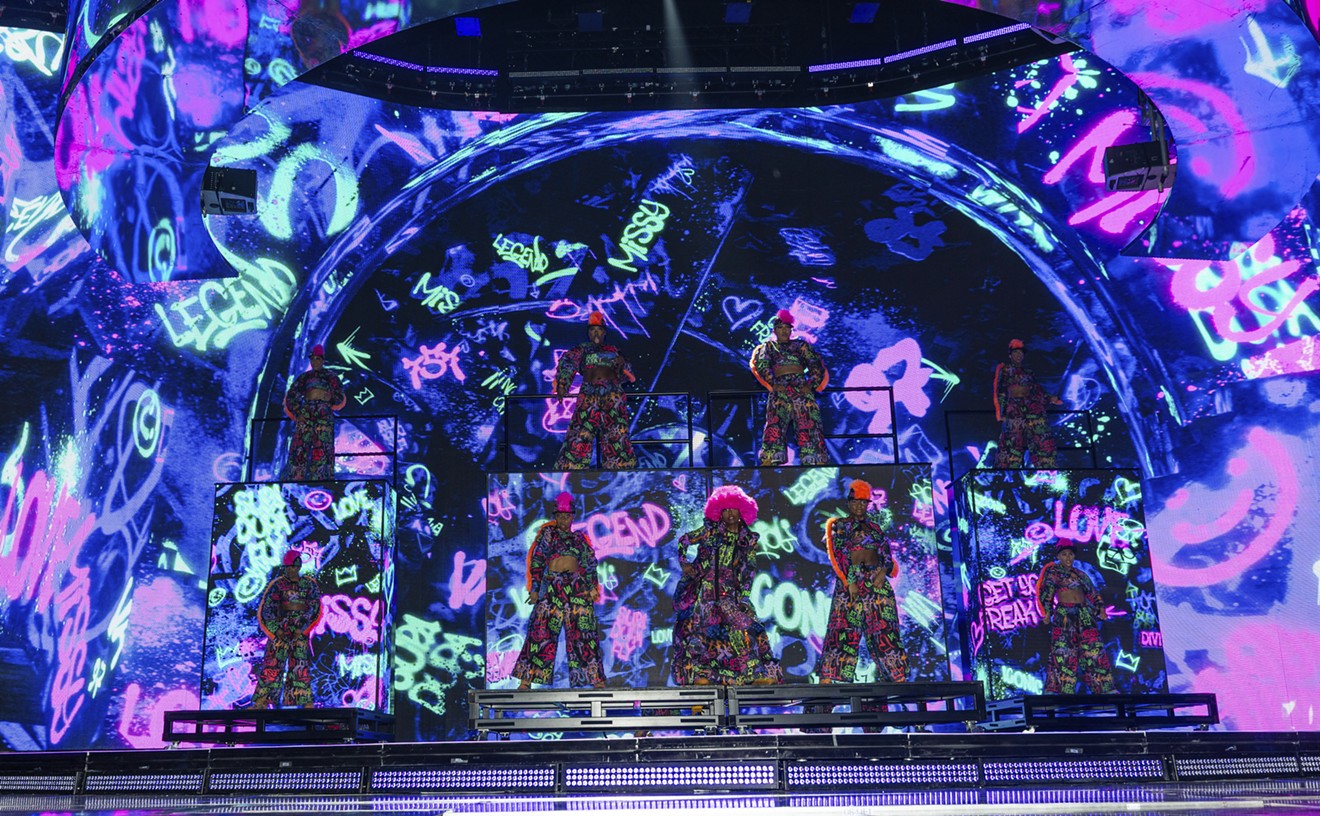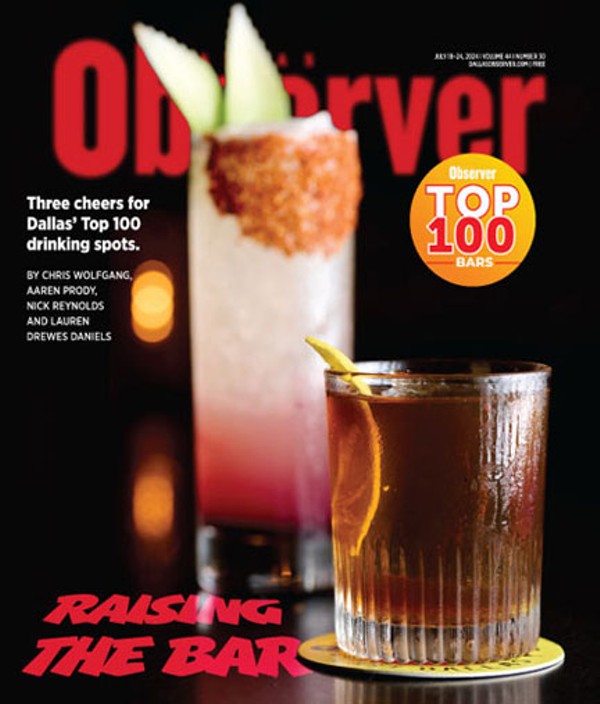"If it was the old days, that's what I'd have done; nowadays the ante's up", says Shawn Pittman. He's among a number of artists who have leapfrogged the shop-around phase by cutting their own albums. His Blues From Dallas, Texas took two days to record and one to mix, all for a tad under $7,000; Pittman got a thousand of them. He can still offer it to labels, but in the meantime he sells it at gigs and earns income from it.
In ye olde days of vinyl, if you wanted to bypass the labels and put out your own album, you were likely to shoot yourself in the foot because homespun LPs almost always sucked. Even musically excellent examples--like Roger Boykin's Cycles and Princess Tex's eponymous LP of 1988--were handicapped by bad sound. Bands blamed area sound techs and pressing plants, with varying degrees of justification.
The digital era brought a more evolved, affordable, and accessible studio technology that dovetailed with the maturation of the local pool of producers and engineers. Musicians have more studio savvy than they once did, as well. CDs are cheaper to make than LPs and easier to sell from gig to gig than weighty, warp-able vinyl. Where once "local album" was a synonym for substandard, homegrown CDs are a burgeoning populist art form that can often stand toe to toe--both creatively and sonically--with what labels offer.
Pittman was an aspiring musician from Oklahoma when he moved to Dallas in 1992. He was too young to go into bars alone at first, so he had an uncle escort him to a Thursday-night blues jam at the now-defunct blues club Schooner's.
"Then Hash Brown took me under his wing," says Pittman. "He showed me some Lightnin' Hopkins stuff and introduced me to people. The first band I was in was [with] Cricket Taylor."
He also worked with Paul Size, a fiercely groove-oriented guitarist who likely goosed Pittman's chops in the direction of the percussive, skank-funk chording he often employs that makes his shows so conducive to dancing. One night at the Bone, he was in a trio hired to back U.P. Wilson, who pulled a no-show. Pittman dutifully became frontman for the night and decided he liked it.
"I felt like I was good enough to make my own product," he says. So with such proven sidemen as ex-Freddie King bassist Johnny Woods, he strode into the studio and slammed down songs pretty much the same way he slams 'em live.
Pittman grins and says, "I think it was Stevie Ray Vaughan who said, if you do a song more than twice [in the studio] you're wankin'. I knew I could get in there quick and get out with a good CD. All I needed was the money."
He got it in time-honored musicians' fashion--he borrowed it--and, with engineer Paul Osborne at the soundboard, he cut his album.
You might expect the gen-X Pittman to fit into the emergent skank-blues idiom exemplified by such youngbloods as Kid Bangham or the Holy Moellers. His CD does present similarities, but it's a marginally more traditional work than theirs. The 10-cut collection--six of which are Pittman-penned--opens with the 12-bar instrumental "Night Stomp," whose tense horns and hell-bent pace resemble the work of Albert Collins. Another standout is the Mike Bloomfield-Nick Gravenites obscurity "Working Man." In an unstrained voice slightly reminiscent of the Moellers' Rhett Frazier, Pittman touts his blue-collar ethic convincingly. "Yes She Does" is rather in a Chicago blues mode (sans horns but with honkin' harmonica by Fabien Peulvast), while "Trouble Comes Around" is a flat-out rocker. Another good one is "Dallas City Police" (perhaps based on a meeting with same) which is a staple of his live shows because of its snakey, dance-friendly rhythm. Throughout the album, Dirk Cordes--who looks like Rutger Hauer before he got fat--turns in strong drumming.
Customarily, when you get your finished albums, you face the question of whether to sell them solely at gigs or to enter the tangled skein of dealing with distributors who'll place them in stores. But with Blues From Dallas, Texas, not one but two indies offered to pick it up. One Pittman rejected because the deal called for rights to all his publishing (it sounds like robbery, but it's not as rare a deal as you'd think). He instead inked with newly formed Cannonball, which will soon dispatch producer Ron Levy to Dallas to oversee cutting a Cannonball version of the album, possibly augmented by a live selection or two.
"With Cannonball's deal, I can pay back the money I owe and have some left over," drawls Pittman, obviously convinced that this business of cutting one's own album can be a real cool hand.
Robin "Texas Slim" Sullivan, lead guitarist of the Texas Slim Blues Band, would likely agree. For marginally less than Pittman spent, the band rustled up a thousand copies of their own album, Blue This Morning.
One could oversimplify Blue This Morning by calling it a Robert Cray-meets-Johnny Winter sort of thing based on Sullivan's serrated guitar sound, although on the title cut he sounds more like Jimi Hendrix than Winter. Bassist Bill Cornish and drummer Kenny Stern know how to put in the extra oomph that a trio needs without overplaying, and the music is made even more immediate by Sullivan's avoiding the common rock-trio ploy of fattening their sound (and often taking it miles away from what they get live) by dubbing in a rhythm guitar track. Junky Southern's Reed Easterwood is an able producer, and Tom Faulkner (Lost in the Land of Texico) supervised the mix, in this case with all the band members present. That's rare--the last thing a sound man usually wants at the mixing stage of production is "help" from musicians, but here it seems to have served the project well. There's hardball blues ("Laundromat Blues," "Coffee Grindin' Mama," and a nice take on Freddie King's 1961 instrumental "Onion Rings") and some quirkier items like the closing cut, "Them Train Blues," which has a guitar part so hooky it's downright hard to get it out of your head.
Sullivan's first blues dates were nooners at the downtown library auditorium with piano patriarch Alex Moore in 1981. Except for some stabs at the rock and roll market, he's had visibility on the local blues scene ever since. Figuring that his singing was OK for bar dates but not for recording, he was content to bide his time as far as shopping his work around or cutting a CD was concerned.
Enter Ken Murray, his present singer. Although people say he sounds like Robert Cray, Murray (a thirtysomething technical writer from Grand Prairie) is uninfluenced by Cray or any other blues singer: His entire musical background is in gospel singing. Soulful, rich in tone, and easy to understand (welcome change, the last item), Murray's voice fits right in with such Sullivan songs as "Blue Down To The Bone," which is certainly that, or "Soul For A Heel," which would be right at home on a gospel radio station playlist. Sullivan figured he had finally teamed with a singer worth taking into the studio.
Most of the money Texas Slim's band spent on their album was put up by drummer Kenny Stern, hence Stern's "executive" producer credit on the band's liner notes. For their dough, they got studio time, disc pressing, album covers, and all the other things associated with making an album. Just as importantly, they got control.
"Artistic freedom is the biggest benefit from doing your own CD," Sullivan asserts. "Also, money-wise you know what's going on. You know no one's going to have a bunch of crummy-looking posters printed up and take it off the top of your publishing."
Ultimately a musician does want to be with a label, says Sullivan, though it's not always a stairway to heaven because they find all manner of expenses for which to bill musicians. He likes to recount how the Geffen label schlepped the New Bohemians (New Bo's percussionist John Bush was in a Texas Slim band of the mid-'80s) all the way to Wales to cut their debut album, an extravagance you can bet came out of the musicians' pockets.
You can buy Blue This Morning at CD World and Borders, and although Sullivan believes that blues bands sell 90 percent of their records at gigs, he plans to get more CDs in more stores because that at least gets them seen. It's possible to do this all by your lonesome, but it's time-consuming and better to go through distributors, a noted pain in itself and something Sullivan knows a bit about because he used to work for Big State, a distributor.
"I remember when Anson Funderburgh personally delivered a load of his records to the warehouse, when Black Top (the label Funderburgh was on) was distributed by Big State. I remember Anson coming by in his station wagon, and I helped him unload a big stack of records. We got 'em all checked in, and basically I was told, 'shove that stuff in a corner, man. It's gonna sit here till we can send it back.' That was the way they did anything local."
Big State seems to have gotten its karmic due when Alliance, the mega-distributor that acquired it, went belly-up earlier this year. Distributors that come in its wake probably won't have much more respect for grassroots product, but such is life. "The most important thing for an artist, especially if he's stylistically a little bit different, is to get your product out there! Get it made!" Sullivan stresses.
"These days a label like Alligator, the biggest-selling blues independent, requires that you already have a product before they'll even consider you," he explains. "They don't want to release anyone's first record. Another thing, you can make demo tapes all your life, and if you never get picked up, then all you got's a roomful of demo tapes. We have a finished CD here. While all the people we send them to are making up their minds and scratchin' their heads, we're sellin' 'em off the stage. We have a product we can take and show to people and say, 'Hey--this is us!





